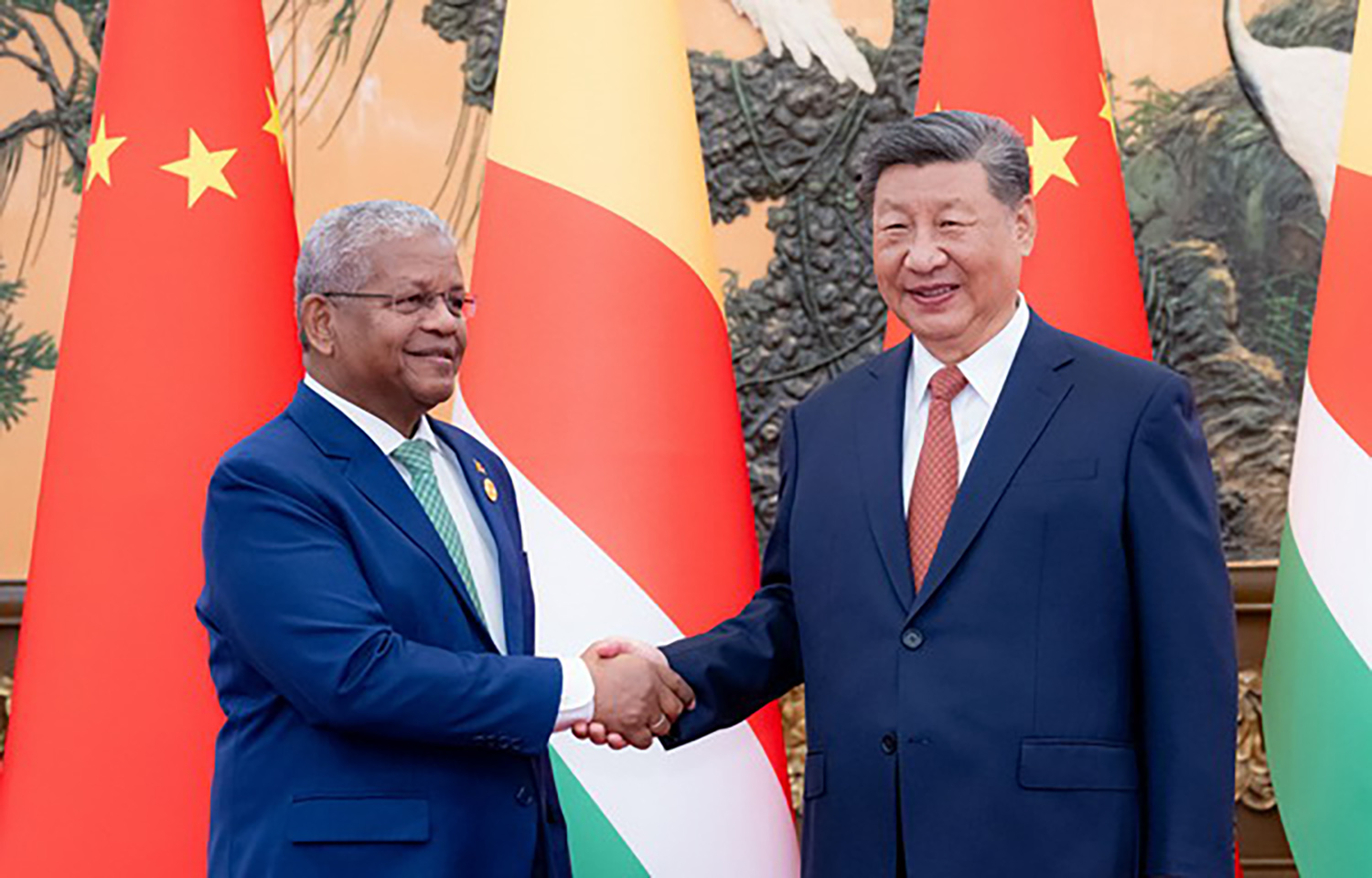In late August, Chinese Ambassador to the Seychelles Lin Nan accompanied a delegation from the China Distant-Water Fishing Association to meet with Seychelles Fisheries Minister Jean-François Ferrari.
At the meeting, Ferrari "expressed his willingness to further tap the potential for cooperation in fisheries and blue economy with China and jointly promote the development of bilateral relations," according to China's embassy in the Seychelles.
China has courted numerous African nations in an attempt to cash in on their fisheries resources, and the Seychelles are a major hub for tuna fishing and processing in the Indian Ocean.
A recent Planet Tracker report showcased how closely the Chinese government’s coffers are linked to the trade, making collaboration with Seychelles a move that tracks with historical actions taken by China.
Seychelles President Wavel Ramkalawan was among several leaders who flew to Beijing for the Forum on China-Africa Cooperation (FOCAC), which took place 4 to 6 September.
Before FOCAC, Ramkalawan appeared on the China Central TV show "Leaders Talk," where he said he wanted to boost Chinese tourism and investment spending in the Seychelles.
FOCAC usually features a series of announcements on aid and trade deals. Previous deals have included Fuzhou Hong Dong Pelagic Fishery Co. commiting to build a large fishing port and processing facility in Mauritania, and the Chinese government pledging USD 26 million (EUR 23.6 million) to build the Bandim fishing port near Bissau, the capital of Guinea-Bissau.
CNFC Overseas Fishery Bissau Office Head Sun Zhi Xiang was recently honored by the government of Guinea Bissau for his contribution to the local economy.
Guinea-Bissau President Umaro Sissoco Embalo recently conducted a three-day visit to China, pledging cooperation between the two countries will be "further developed and intensified," according to Deutsche Welle.
More than 70 Chinese fishing boats now operate in Guinea-Bissau's territorial waters. That increase has come as the European Union has pulled back its presence in the country, according to Lusofona University of Guinea-Bissau Professor of Sociology Diamontino Lopes.
Lopes said China has finished its work on the Bandim port, while the E.U.'s promised upgrades to the nation's older port have not yet been initiated.
"The port entrance is still dirty and silted up. Large ships still cannot dock there," Lopes said. "No one knows where, how, with what aim, and with what results the E.U. is investing in the fisheries sector in Guinea-Bissau."
Lopes said Guinea-Bissau is receiving more financial support from China, even though the E.U. has its own fisheries agreement with with the country.
"China is the most important partner of Guinea-Bissau in almost all areas. What is new is that there is currently no serious alternative to China. And that is somewhat worrying," Lopes said.








